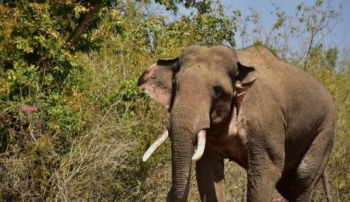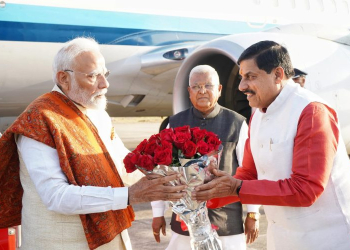New Delhi: A special three-day meeting to advance an ambitious Global Biodiversity Framework agreement to bend the curve on nature loss will take place in Montreal, Canada, on December 3-5.
It will be the world community’s fifth meeting to negotiate the agreement’s outline, goals and targets, which will be considered for adoption immediately thereafter during the 15th Conference of Parties to the UN Convention on Biological Diversity (COP15), chaired by China, now scheduled December 7-19 in Montreal.
A high-level segment of the conference will take place December 13-15.
Elizabeth Maruma Mrema, Executive Secretary of the Convention on Biological Diversity, said: “The fourth negotiating session in Nairobi in June was intended to be the last but the agreement is not yet there. While progress in Nairobi was slow, progress was made, including on the contentious issue of digital sequencing information for genetic resources.
“The parties will have to decide in December whether digital sequencing information will be part of the framework or dealt with separately. The additional negotiating days immediately before COP15 will be crucial to that question and more, necessitating a minor shift in the dates of this historic summit.”
Originally planned for Kunming in China in 2020, COP15 was postponed due to the Covid-19 pandemic and later split into a two-part event.
Part one was successfully held in Kunming last October, at which Chinese President Xi Jinping and other state leaders from eight parties, as well as the UN Secretary General, made online presentations, reinforcing their commitment to addressing the biodiversity crisis.
COP15 part two was also highlighted by the Kunming Declaration and President X’s announcement that China would invest 1.5 billion yuan to establish the Kunming Biodiversity Fund, providing strong political impetus to global biodiversity governance and a solid foundation for the second part of COP15.
The decision to relocate the conclusion of COP15 to Montreal was made last month by the Bureau of the Conference of the Parties, in consultation with the CBD Secretariat and the governments of China and Canada.
Meanwhile, at the Africa Nature Finance Forum held this week on the sidelines of the inaugural African Protected Areas Congress (APAC) 2022, government leaders and experts from across Africa called for an urgent increase in financing to protect the world’s biodiversity.
“By 2100, we may lose half of our bird and animal species, 20-30 per cent of the productivity of African lakes and significant numbers of our plant species,” said Lee White, Minister of Water, Forests, the Sea, and Environment, Gabon.
“In this context, without strong action, we will create instability and security issues all over the African continent. One of the key elements is the mobilization of predictable and sustainable resources. This is why we need to think about innovative and sustainable finance for nature.”
The natural world is disappearing at an unprecedented rate. One million plant and animal species now face extinction, many within decades, and 60 per cent of terrestrial wildlife populations have been lost in the last 50 years.
Rainforests throughout the world are being cleared at a rate of four football fields per minute.
To address this crisis, governments, indigenous peoples and local communities, environmental organizations, and businesses are working to develop a new framework to guide biodiversity conservation for the next decade, known as the post-2020 Global Biodiversity Framework.
This global agreement will be finalized at the COP15 to the UN Convention on Biological Diversity (CBD) to take place in Montreal.
However, without sufficient financing, addressing the biodiversity crisis will not be possible, and this critical global agreement may be elusive.
(IANS)




















